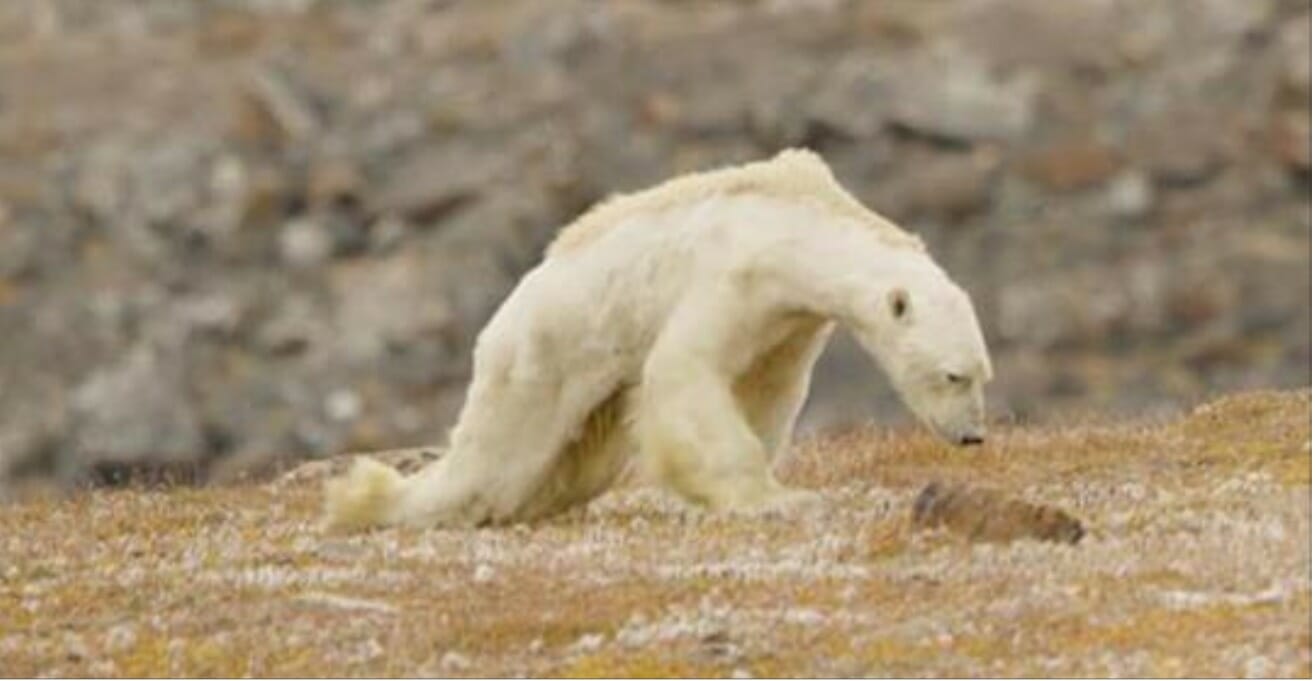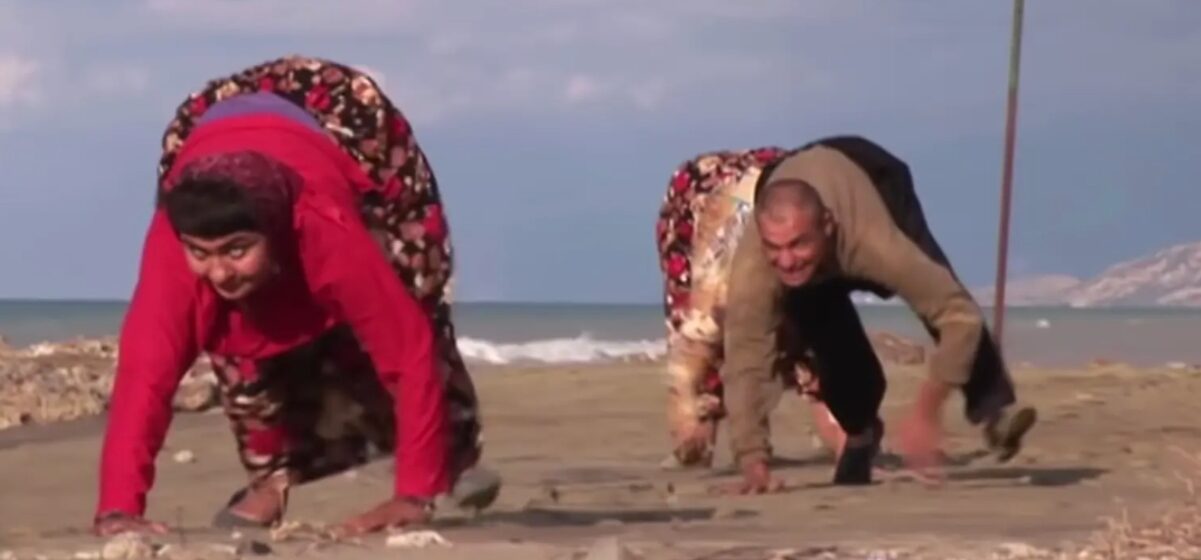
We’ve all heard discussions about global warming and its impact on our planet.
But how many of us have witnessed these effects firsthand?
Photographer Paul Nicklen and filmmakers from Sea Legacy, an organization dedicated to sea conservation, experienced a distressing scene when they visited Baffin Island on a summer day.
They came across a starving polar bear on the brink of death.

Paul, a Canadian biologist and wildlife photographer, had encountered around 3000 polar bears during his career. However, the images he shared on December 5 were far from beautiful.
“We were in tears, filming with tears streaming down our faces,” Paul recounted to National Geographic.
The video depicts a polar bear desperately searching for food—its fur sparse, its movements hindered, resorting to dragging itself with its front paws.
Scavenging through a nearby trash can, the bear hoped for any leftovers from fishermen.
Yet, the bins were empty, and the polar bear succumbed.
Many questioned why Paul didn’t intervene as the bear suffered.
“The thought crossed my mind,” Paul explained to National Geographic. “But I wasn’t equipped with a safety gun or 250 kg of meat, of course.”

Even if Paul had these resources, it would only have prolonged the bear’s suffering as it’s illegal to feed wild animals in Canada.
Paul documented the polar bear’s demise to ensure its death wasn’t in vain.
The images of the dying polar bear are incredibly distressing. It’s impossible to watch the video without being deeply moved by the tragedy unfolding. And the most tragic part is… it’s our doing.
Paul hopes this narrative serves as a wake-up call for more people to comprehend the ramifications of global warming.
Polar bears stand at the forefront as the earliest casualties of rising temperatures and melting ice.

With diminishing ice, polar bears struggle to locate seals, their primary food source.
According to the WWF (World Wildlife Foundation), polar bears have been facing a risk of extinction since 2002, evident from many bears exhibiting signs of starvation.
Fast forward 15 years, the outlook remains bleak as melting ice caps paint a grim future for polar bears.
If immediate action isn’t taken, polar bears are on a fast track to extinction, as reported by the U.S. Geological Survey.
Watch the footage captured by Paul below.
WARNING: graphic content
[arve url=”https://youtu.be/oiC_HG3u-nk” /]
Help us spread this video to raise awareness about the severity of the situation. Together, we can make a difference!
Published by Animal Bible. Please like.




